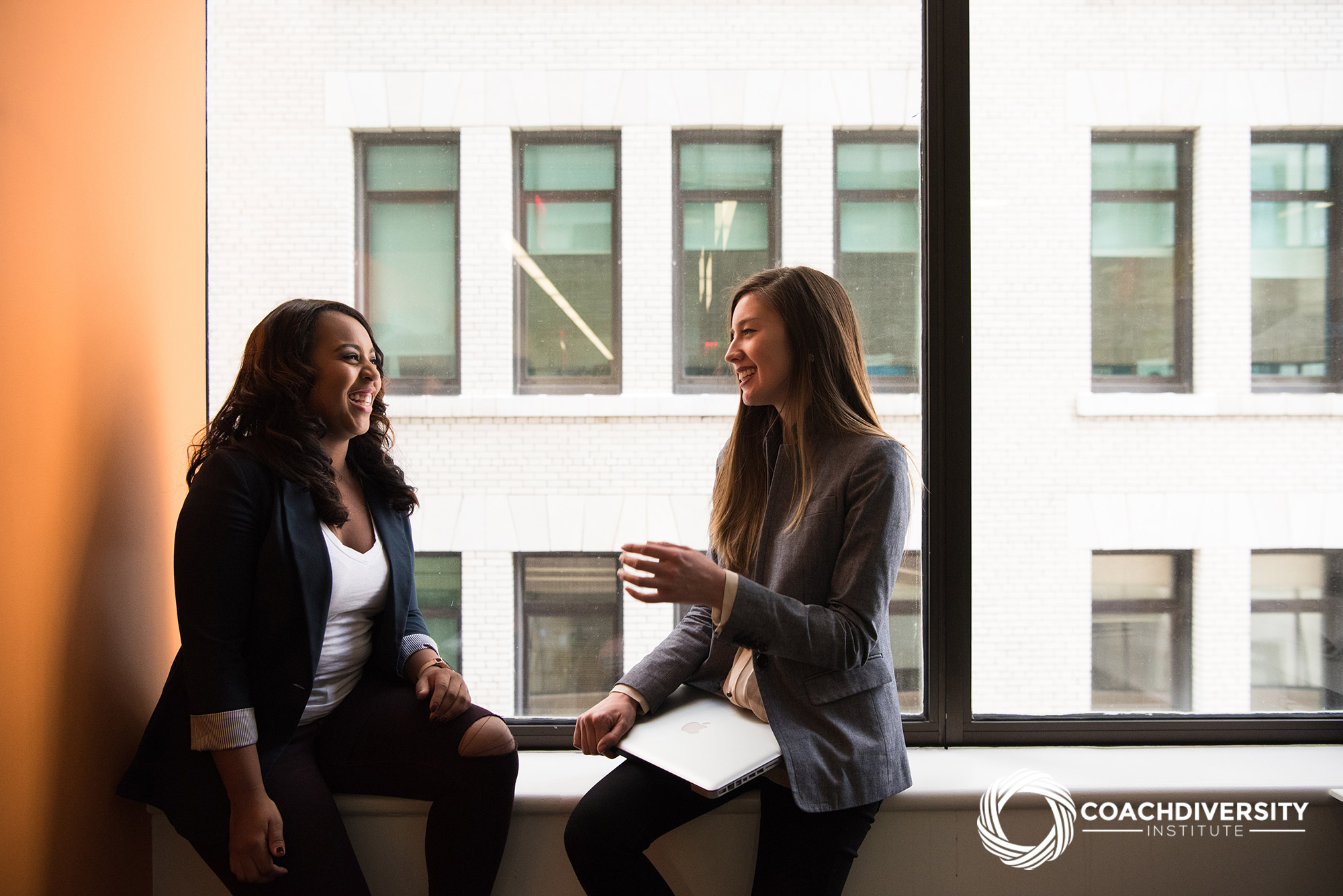LGBTQ Training
Cultural competence training is a critical component of a successful business, organization, or healthcare provider. Unfortunately, those in the LGBTQ community continue to face challenges that cisgender and straight communities don’t. Because of long-standing bias, cultural discrimination, bullying, and violence, LGBTQ individuals are at healthcare and financial disadvantages.
LGBTQ competence training is the tool to bridge the gap between bias and inclusion. Experts at CoachDiversity Institute guide corporations and individuals in navigating struggles, the vocabulary used, and how to make a difference in the LGBTQ community.
What is LGBTQ training?
LGBTQ competence training is specialized training dedicated to educating, certifying, and providing tools for supporting the LGBTQ community. The robust modules prepare individuals and organizations for cultural awareness coaching. Training with an accredited organization like CoachDiversity Institute is an extensive yet necessary program spanning months.
Once completed, those with the LGBTQ training certifications enter workforces, communities, government, healthcare providers, and mental health facilities better prepared to work with diverse people. Access to necessary services, such as healthcare plans, is not available widely to these communities, and LGBTQ training helps change that!

Challenges the LGBTQ Community Faces Everyday
The LGBTQ community faces more challenges than the average cisgender person. In addition to social isolation, there are often challenges with coming out to family members, finding adequate healthcare, and outright oppression. Working professionals who receive LGBTQ training are empathetic to the plights of their colleagues.
Understanding these challenges leads to better interactions for everyone. LGBTQ training gives individuals and organizations the toolkit needed to help support those suffering from everyday struggles. Community members access educational programs and materials through CoachDiversity Institute’s experts and e-books.
Finding community
When identifying as LGBTQ, the feeling of isolation can dominate everyday interactions. Feelings of exclusion, suicidal thoughts, and discrimination do more mental health harm to the LGBTQ community than many other challenges. It doesn’t help that many once welcoming communities can turn on a person because of their sexual orientation. Places like CenterLink offer safe spaces for LGBTQIA, but there are only so many facilities.
Healthcare challenges
Another significant struggle for the LGBTQ community is in healthcare. Discrimination is the largest culprit, where the stigma of being LGBTQIA leads to bullying, substance abuse, health disparities, and lack of access to health insurance. Plus, there is a shortage of healthcare providers skilled in services catered to LGBTQ people. The challenges are even steeper if one is transgender, where experienced clinicians and medicines are hard to find.
Tensions in family relationships
Self-acceptance is hard enough, but the tensions surrounding families are higher thanks to social bias. People who identify as LGBTQ struggle most in families with heavy religious backgrounds, where coming out is not just frowned upon but leads to violence. Rejection from family is often a cause of poor mental health and increased LGBTQ suicides.
Sharing one’s sexual orientation
The process of letting in (formerly referred to as the coming out process) starts with accepting oneself as LGBTQ and understanding and appreciating sexual identity. Usually, individuals come out to themselves first, then share their identity with others. While it can be liberating, coming out is often scary, especially when social forces push societal norms. Comprehending that the process can happen suddenly or over a long period helps break the bias that straight, cisgender is the only proper social standard.
Discrimination and internalized oppression
Another drawback of discrimination toward the LGBTQ community is the internalized oppression. Internalized oppression is the feelings of bias towards one’s own identity. Trans people feel sensations of transphobia or transphobic thoughts. It shows up as homophobic thoughts in gay, lesbian, and bisexual individuals. This internalized oppression and discrimination from the media or society contributes to the mental health crisis.
Why is it important to receive LGBTQ training?
Along with cultural competency training for other diversity groups, LGBTQ training is a cornerstone for Diversity, Equity, and Inclusion (DEI). By understanding, respecting, and embracing a diverse culture, workforces improve productivity, inclusiveness, and reduce friction. Businesses can even benefit from enhanced communication and loyalty to the brand or organization.
Diverse workforces allow businesses and organizations the opportunity to connect with their audience. Widespread implementation of LGBTQ training opens access to healthcare services, improves mental health situations, and identifies areas where challenges can be illuminated or eliminated.
Who benefits from this training?
When investing time, money, and human resources in training for cultural competence, knowing those who will benefit the most is critical. Typically these are individuals who take on leadership roles, decision-making positions, or influential members of various teams.
- Senior Leadership – The highest-ranking members of an organization must embody the culture and values of their establishment. CEOs, presidents, board members, and their support staff benefit most at this level.
- Healthcare providers and healthcare professionals – Access to specialized care is a massive struggle for the LGBTQ community. With cultural competence training, healthcare providers understand the care these individuals need.
- Colleagues or Coworkers – Breaking down barriers and eliminating bias will open communication and improve productivity. Understanding builds empathy.
- The LGBTQ Community – With more people working to build equality, the challenges of the LGBTQ community begin to dissolve.
Unintentional bias prevents progress for many. LGBTQ competency training works with individuals and organizations to undo the cultural established bias many face.

Choose the right learning path for you or your team
With the increasing diversity in today’s world, it’s more important than ever to be aware of and be sensitive to different cultures. Investing in multicultural education is a great way to ensure that your team is equipped to work effectively with people from all cultures.
PATH 1: Associate Diversity Coach
Associate Diversity Coach (ADC) involves 60 training hours. Attend Session 1 Coaching Foundations and complete the remaining hours virtually. This diversity and inclusion certification curriculum includes coaching foundations. You will be able to begin your coaching practice with a solid foundation of core coaching competencies. No additional in-person classroom time is required.
What you get:
- 30 hours of in-person training (Session 1)
- 6 virtual learning labs
- 12 peer coaching hours
- 10 mentor coaching hours
- 2 hours self-study writing assignment
This diversity training certification program takes approximately 4 months to complete. This designation helps you qualify for the ICF membership and apply for the ICF’s certification and credentialing through the ACC ACSTH Path.
PATH 2: Certified Professional Diversity Coach
Certified Professional Diversity Coach (CPDC) includes 125 training hours. Attend Session 1 Coaching Foundations; Session 2 Coaching & Cultural Competencies; and Session 3 Inclusive Leadership & Business Development.
The CPDC level certification curriculum includes coaching foundations, advanced coaching techniques, more profound emotional intelligence work, CoachDiversity’s model for diversity and inclusion, cultural competence, and leadership and business development. You will learn the coach-approach to developing cultural competence as a certified diversity professional. The topics covered:
- Developing awareness of the cultural difference
- Cultivating a non-judgmental attitude toward difference
- Transforming bias toward inclusion
- Coaching principles and cultural competency
- Minority stress
- Managing conflict around diversity and inclusion in the workplace
- Coaching micro-aggressions
What you get:
- 90 hours of in-person training (Sessions 1, 2 & 3)
- 6 virtual learning labs
- 12 peer coaching hours
- 10 mentor coaching hours
- 2 hours self-study writing assignment
- 5 hours of business development
This diversity inclusion certification program takes approximately six months to complete. This designation helps you qualify for the ICF membership and apply for the ICF’s certification and credentialing through the PCC ACSTH Path.
No matter which route you choose, taking steps to learn more about multicultural education will benefit you and your team. Learning about other cultures can help your organization create a more inclusive environment for everyone.

Taking stock of where your team’s diversity, equity, and inclusion sits will help determine the right path for your team. Working professionals may opt to become a certified coach and take on the leadership of diversity. In contrast, other learners may decide that an associate diversity coach is the route to go.
Recognizing that culture has to change is just the first step. CoachDiversity Institute provides symposiums, books, individual, technical assistance, and workplace programs to help build an LGBTQ-positive environment.
LGBTQ Training Discussion Topics
Training programs offer structure in approaching the complicated topic of cultural competency. Various topics receive detailed attention to provide an in-depth understanding of the LGBTQ community. LGBTQ 101 topics often include:
- Vocabulary, terminology, and slang used toward LGBTQ individuals
- LGBT rights movements and key players
- Everyday struggles, misconceptions, and stereotypes
- Ways to be supportive of the LGBTQ community
- Understanding gender identity and gender expression, and LGBTQ identities
The National LGBT Health Education Center, a program of the Fenway Institute, also advocates for continued education through the use of webinars, e-books, and other online training.
Create a safe work environment for the LGBTQ community with Coach Diversity Institute
The world is hard enough for our LGBT family and friends. Safe environments become established by implementing LGBTQ training in workplaces and healthcare institutions. These safe spaces breed inclusion, positivity, improved communication, increased empathy, and more substantial productivity.
Understanding the struggles of the LGBTQ community is only the beginning. Making lasting change happens when you become an advocate for diverse individuals. The CoachDiversity Institute provides training paths, materials, support, and skills to build an inclusive workspace. These cultural competency trainings benefit the organizations that implement them and the audience the services are reaching.
Without the guidance of LGBTQ competence training, working professionals and healthcare providers are at a disadvantage and likely to fall into implicit bias. Together with CoachDiversity Institute, we can change the narrative of the LGBTQ community and improve suicide prevention.